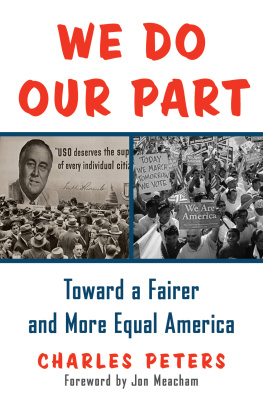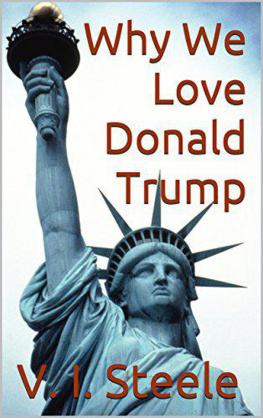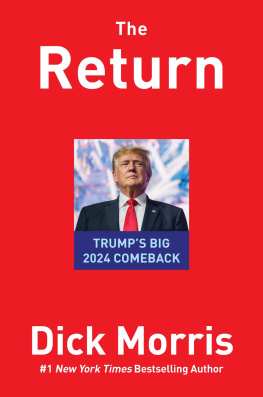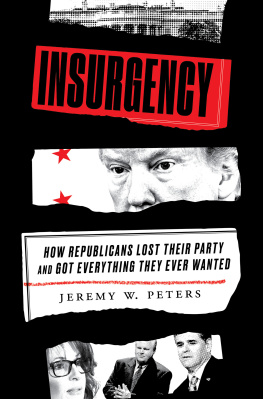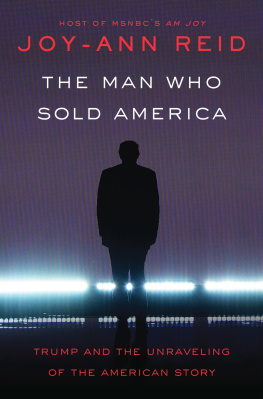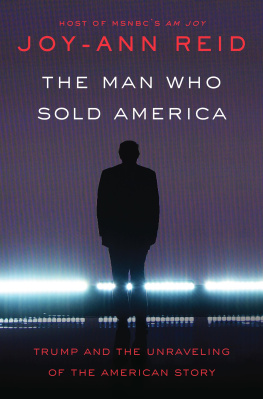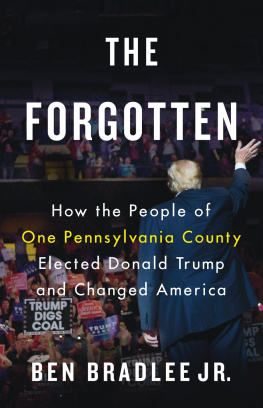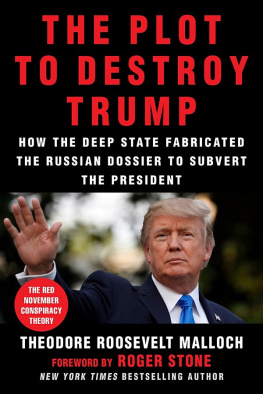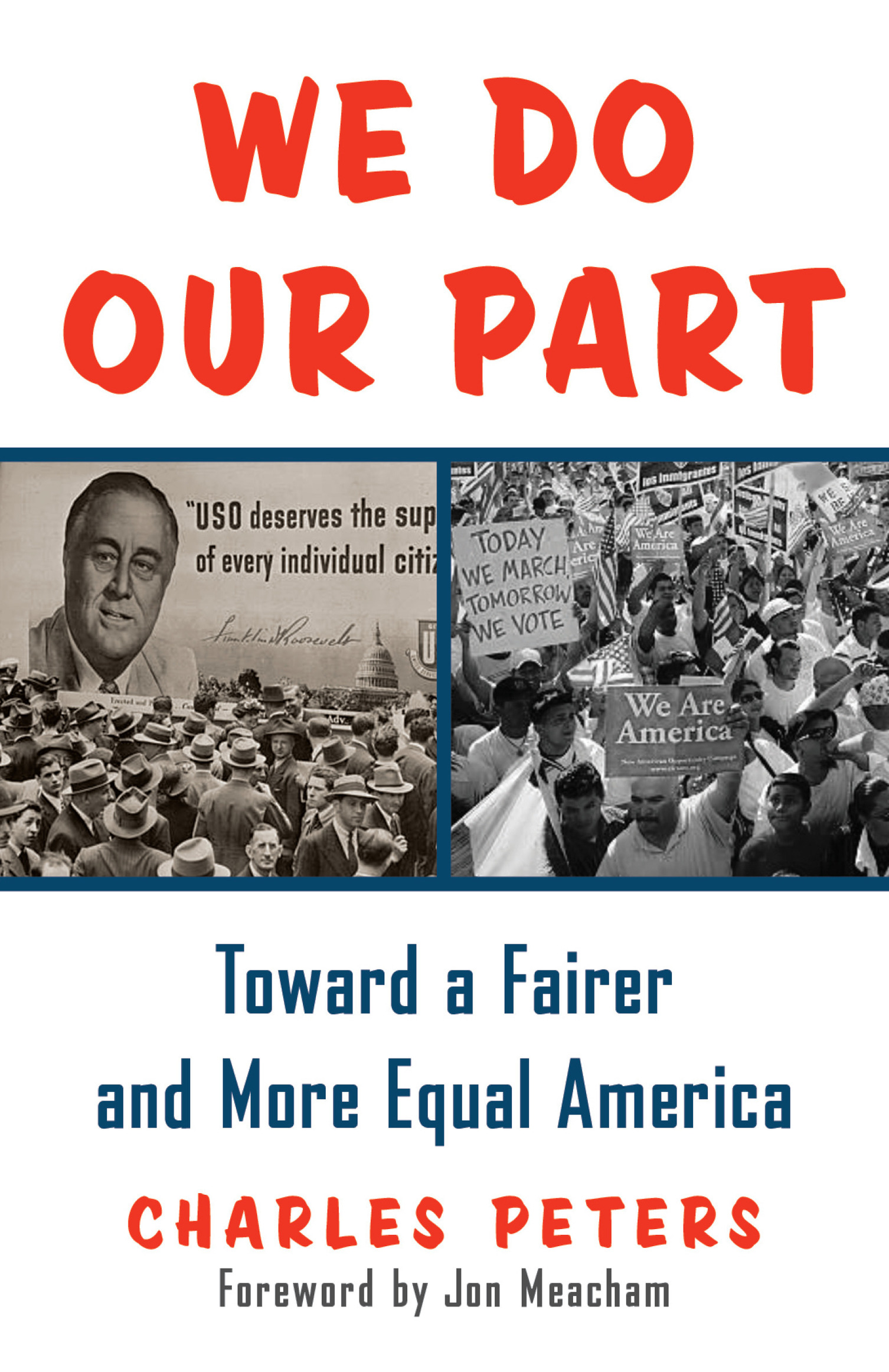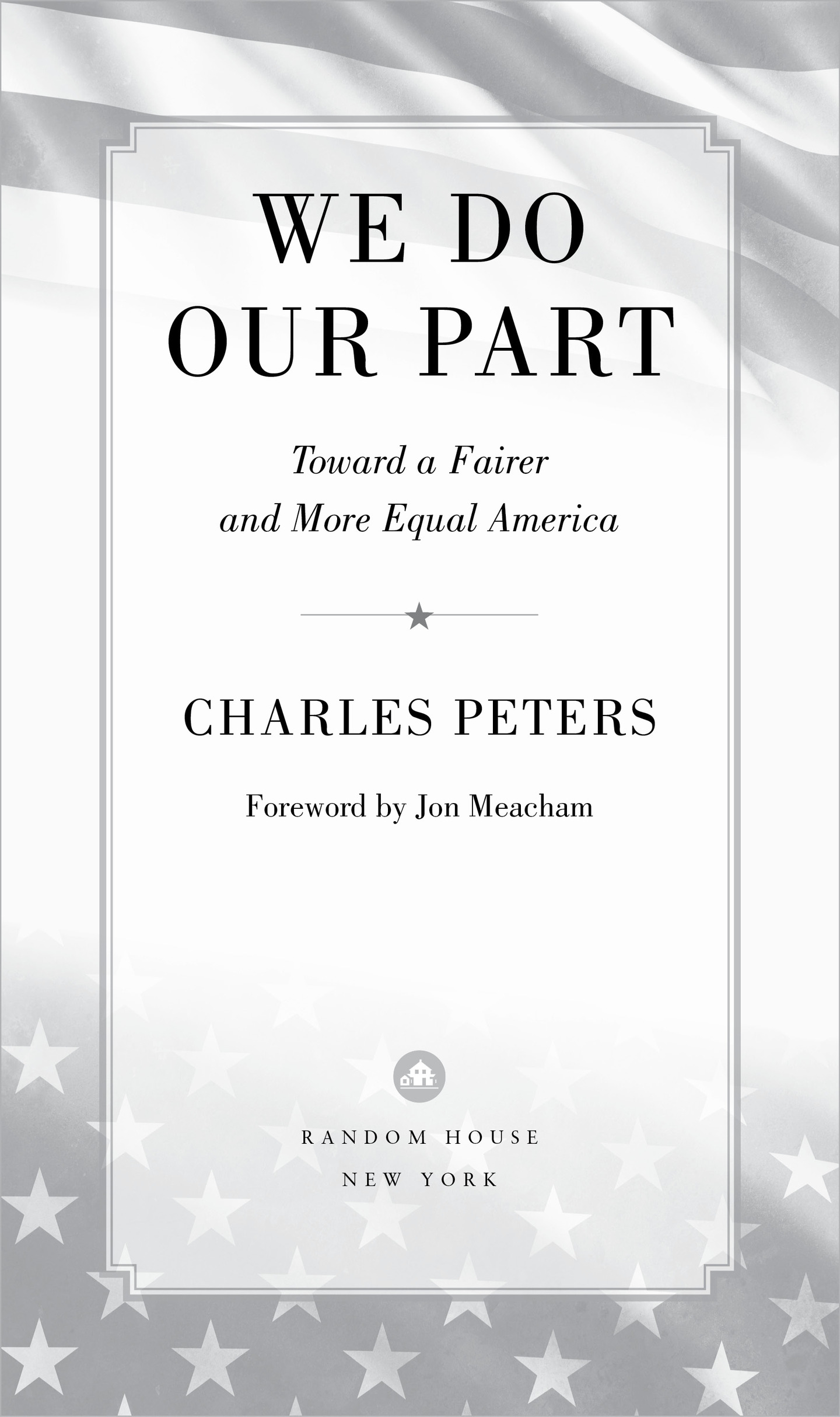Contents
Landmarks
Print Page List
Copyright 2017, 2019 by Charles Peters
All rights reserved.
Published in the United States by Random House, an imprint and division of Penguin Random House LLC, New York.
R ANDOM H OUSE and the H OUSE colophon are registered trademarks of Penguin Random House LLC.
Originally published in hardcover in the United States by Random House, an imprint and division of Penguin Random House LLC, in 2017.
Grateful acknowledgment is made to the following for permission to reprint previously published material:
The Guardian: Excerpt from Get Carter by Gaby Wood (The Guardian, November 10, 2002), copyright Guardian News & Media Ltd. 2016. Reprinted by permission of The Guardian.
Perseus Books, an imprint of the Perseus Books Group: Excerpt from How to Lose Friends and Alienate People by Toby Young, copyright 2002 by Toby Young. Reprinted by permission of Perseus Books, a member of the Perseus Books Group.
Errol Lincoln Uys: Excerpt from Riding the Rails: Teenagers on the Move During the Great Depression by Errol Lincoln Uys (Boston: T. E. Winter & Sons, 2014), copyright 2014 by Errol Lincoln Uys. Reprinted by permission of the author.
LIBRARY OF CONGRESS CATALOGING-IN-PUBLICATION DATA
Names: Peters, Charles, author.
Title: We do our part : toward a fairer and more equal America / Charles Peters.
Description: New York : Random House, [2017] | Includes index.
Identifiers: LCCN 2016043513 | ISBN 9780812983753 | ISBN 9780679645665 (ebook)
Subjects: LCSH: EqualityUnited States. | United StatesPolitics and government.
Classification: LCC JC575 .P44 2017 | DDC 323.420973dc23
LC record available at https://lccn.loc.gov/2016043513
Ebook ISBN9780679645665
randomhousebooks.com
Title-page image: copyright iStock.com/ MicroStockHub
Book design by Victoria Wong, adapted for ebook
Cover design: Daniel Rembert
Cover photographs: Fox Photos/Getty Images (left), Win McNamee/Getty Images (right)
ep_prh_5.4_c0_r2
Contents
B y any measure, his is a great American life. From the legislature of his native West Virginia to the founding of the Peace Corps; from the Columbia College of Lionel Trilling to the creation of bracing public-service journalism at The Washington Monthly; from a Depression-era youth to a spectacular series of books written late in life, Charles Peters occupies a unique place in American life and letters. At once wise and street-smart, idealistic yet hardheaded, he, at ninety-two, has much to say about who we were, who we areand who we ought to be.
He is a Renaissance man, great in years but forever young in spirit and in energy. Born in Charleston, West Virginia, in 1926, Charlie attended public schools and enlisted in the U.S. Army in 1944. Injured in a training accident, he recovered and enrolled at Columbia in New York after World War II. Reading widely and deeply, a devotee of the theaterhe worked in summer stock, learning the great truth that the show must always go onCharlie found his way to the University of Virginia law school. Practicing in Charleston and serving in the legislature, he ran John F. Kennedys campaign in West Virginias largest county in 1960. Charlie joined the nascent Peace Corps in Washington, serving as the agencys director of evaluation. In 1969 he became an unlikely entrepreneur, founding The Washington Monthly to, as he put it, cover the capital in the way an anthropologist might cover a South Sea Island. Celebrated for discovering a remarkable array of talented editors and writers who would go on to distinguished careers at more prominent journals, Charlie has led one of the great journalistic careers of this or any era.
I first encountered Charlie in the pages of the Monthly and in Tilting at Windmills, his sage, sprightly 1990 memoir. Sensible, earnest, and wry, Charlies voice resonated with me. His is a political worldview in the purest sense of political, meaning it encompasses all of life, not just the public sector: his cares and concerns include art, culture, faith, honor, and love. He often writes of the state, but his true focus is the soul.
Here is a generous-spirited Democrat with little to no time for liberal pretensions or hypocrisies, a believer in government who labors under no illusions about the limitations of the state. He takes on selfishness wherever he sees it, whether in the boardrooms or CEO suites of American corporations or in the smugness of public-employee unions. He worries about the quiet compromises and corruptions of the meritocratic class, fearing that lives better spent in pursuit of true happiness are instead being consumed by anxieties about money and taste. The Peters gospel, as his Monthly editors referred to it, is both empirically based and bighearted. In the early 1980s, defining his philosophy, Charlie wrote: Webelieve in liberty and justice and a fair chance for all, in mercy for the afflicted and help for the down and out. But we no longer automatically favor unions and big government or oppose the military and big business. Indeed, in our search for solutions that work, we have come to distrust all automatic responses, liberal or conservative.
A voice in the wilderness, crying out for compassion and common sense: Charlie penned that plea for a more rational politics more than three decades ago. (And when I say penned, I mean penned: much to the frustration of his editors over the years, he has never learned to type, preferring instead to scribble in green ink on yellow pagesor in the margins of old-fashioned newspaper clippings.) In the ensuing years, the nation has become ever more partisan and ever more polarizeda state of things that makes the message of the wonderful book you are holding all the more essential and urgent.
The 1930s may seem as remote as Agincourt or Appomattox, but the forces that shaped the decade are familiar in our own time. Demagoguery is on the rise, as is unease about the durability of the basic institutions of society. In the summer of 1932, Franklin Roosevelt remarked that the two most dangerous men in America were Huey Long and Douglas MacArthurLong because he could lead a populist revolt from the left, MacArthur one from the right.
As Charlie movinglyand often wittilyargues, we emerged from the crisis of the 30s by heeding the better angels of our nature. This is not a sentimental point, for the salvation of democratic capitalism was, as Wellington remarked of Waterloo, a close-run thing. Which is why Charlies searching, challenging, and indeed brilliant survey of the last eighty years is so important: Those who came before us managed to make the world better not because they were superhuman. They were like ussubject to appetite and ambition, jealousy and prideand yet fought through the shadows of selfishness toward the light. And if they could do so, then we can, too.
For Charlie is always about hopehope that our politics can be more fulfilling, hope that our lives can be varied and various, hope that the history we make can stand the test of time, illuminating a path forward to what Churchill, himself a voice in the wilderness in the 1930s, called the sunlit uplands of happiness and peace.

